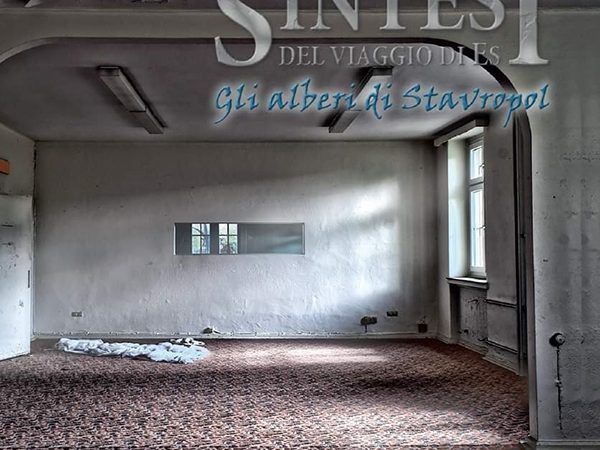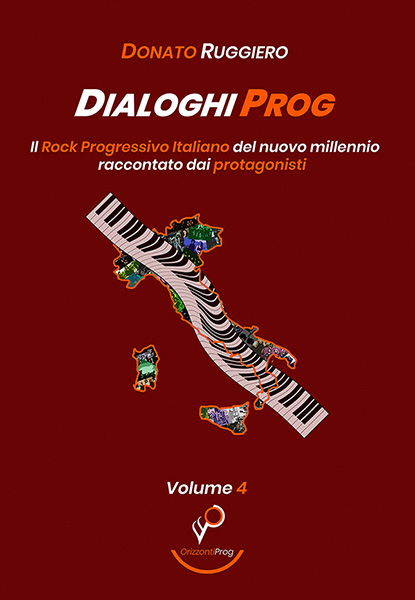
ELECTRIC MUD
The Inner World Outside (2022)
Timezone Records
Electric Mud‘s creative vein is endless. Here, then, comes back with a new album, just two years after “Quiet Days on Earth”, the German Cinematic Prog Art project created by bassist Hagen Bretschneider: The Inner World Outside.
On this occasion, next to the “master of the house”, we find again the “trusty” Nico Walser (composer, guitar, synths, field recordings) and the new collaborators Timo “Timook” Aspelmeier (composer, rhodes, hammond, synths, piano, drums, noises), David Marlow (composer, orchestral programming, piano, synth, percussions) and Judith Retzlik (violins, violas, cellos, voice).
Cinematic essence, symphonic elements, electronic experimentation, dreamlike moments and enchanted landscapes, chiaroscuro textures, are all flanked by classical moments in which strings and piano let you daydream. The strong point, once again, is the quality of the proposal, the compositions and the sounds. And, compared to what was offered with “Quiet Days on Earth”, the project, thanks also to the enlarged line-up, gives something more, widens its horizons wisely and courageously.
Fascinating the artwork by Andrea Weiß, in its quietness of a landscape that seems motionless (even if the smoke coming out from that chimney on the right suggests something else).
Exploring the great wide nothing comes from far away, impalpable, vacuous. Electric Mud are in no hurry to put all their cards on the table and decide for a waiting game, even if with a solemn crescendo. It is only close to the end that Judith Retzlik’s strings “stick their nose out of the door”, softly.
Rain showers wet our robes in the first bars of The fear within. Then, Walser and Aspelmeier’s warm keyboards dry us with their velvety embrace. And when the keys meet the flute everything becomes poetic. And it is Walser again who “pulls” the piece along, even when it touches on jazz territory. Then everything opens symphonically, epically, with dark tones that are held back and developed a little further, less emphatic but no less functional.
Around the mind in 80 lies has a “regal” start, before the rhythms start their lively “jump” (Bretschneider’s bass is clearly present), enriched with tense dowels. Everything points to an explosion, but instead, Electric Mud make a “U-turn”, entrusting the whole to Walser’s folk strings. Evocative. This is followed by brief flashes of madness, complete with whispered voices, and then the resumption of a tiptoeing path that leads to a rock moment, complete with a fiery solo.
Oppressive, funereal, almost Jacula-like, emerges Those who leave the world behind. A black whirlpool that suddenly turns into a cheerful medieval ballad. And when the organ “plays along” with the melody, everything becomes even more fascinating, before moving forward with flashes that even touch PFM territories.
Guardians of the weather machine has a rather peculiar structure, almost without a well-defined form. From the beginning, where strings and electronics advance placing layers of tension on top of other layers of tension, to the moments that move between Nine Inch Nails and Prince, up to the dramatic “fall” between the notes of Judith Retzlik’s strings, everything is well constructed and pleasantly live.
Marlow’s soft, caressing piano welcomes us to the Silent stranger suite. Even when synthesizers and strings enter the scene, the sense of inner peace does not change a bit. And when everything is left in the hands of the Mediterranean strings of the guitar, the atmosphere becomes even more delicate and poetic. You are already in her arms, cradled maternally, when an organ slap comes to pull you down with force. What follows is a partial return to the initial sensations, a little richer and more tense, at times hypnotic, with Retzlik’s bow, in some moments with a touch like Giusto Pio, sublime in his intervention.
An exotic and mysterious touch characterises the first bars of Sérotonine. Then everything becomes faint, light, at times new age. And with the entrance of the bow, well encircled by the electronics, the episode takes on a poignant poetry, slightly Roz Vitalis, before closing symphonically. Undoubtedly one of the album’s most intense moments.
Suspense and tension grow in the piano notes that introduce us to Descent into the forsaken valley. And even when the electronics and strings enter the scene, everything takes on a new appearance but without giving way to the mood front. And, suddenly, after giving a little jazz essay, Walser’s piano gives way to some acid and sixties keys. But he soon returns to take the stage again, with class.
Moving On. The farewell is sweet, melancholic, and flows from Marlow’s fingers, delicately resting on the piano.
This is the end of a new remarkable performance by the Teutonic project. A guarantee.









Leave a Reply